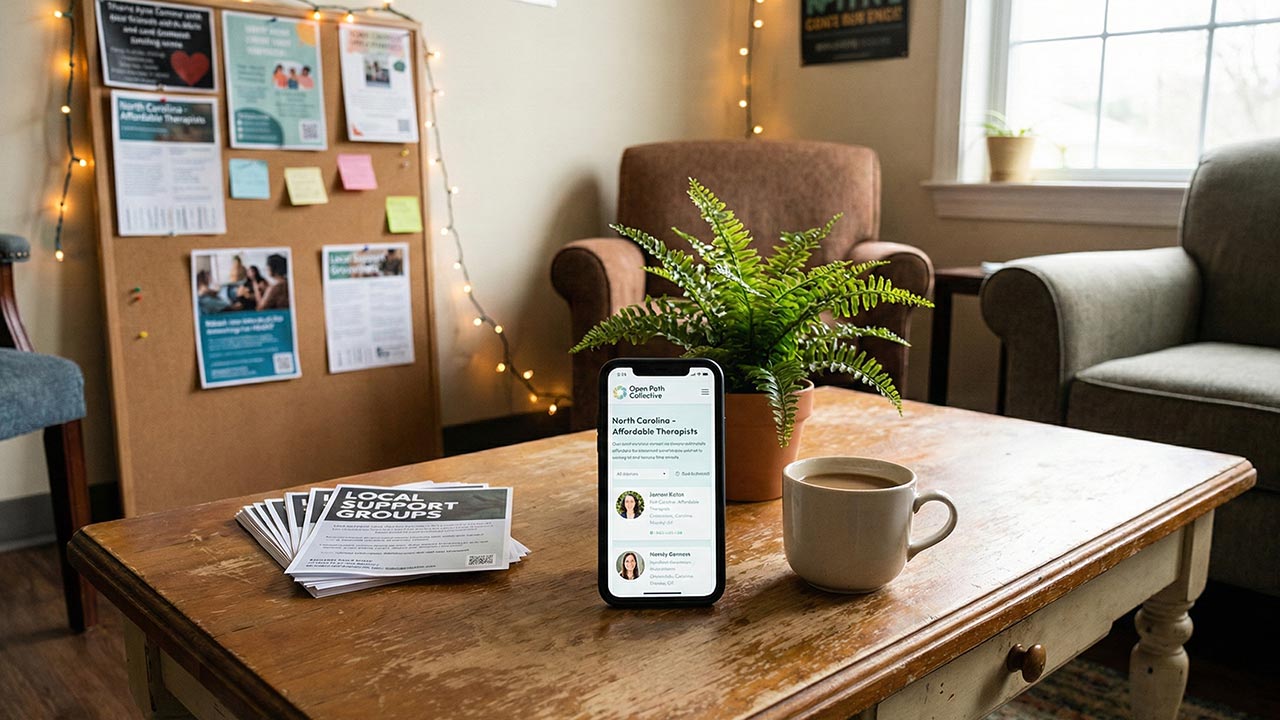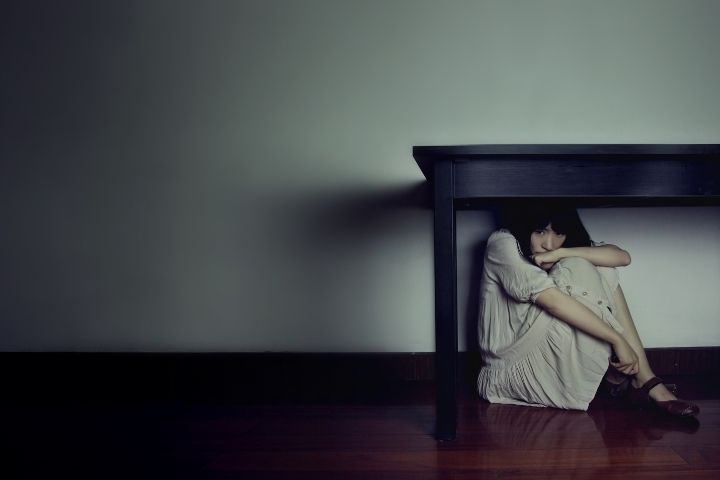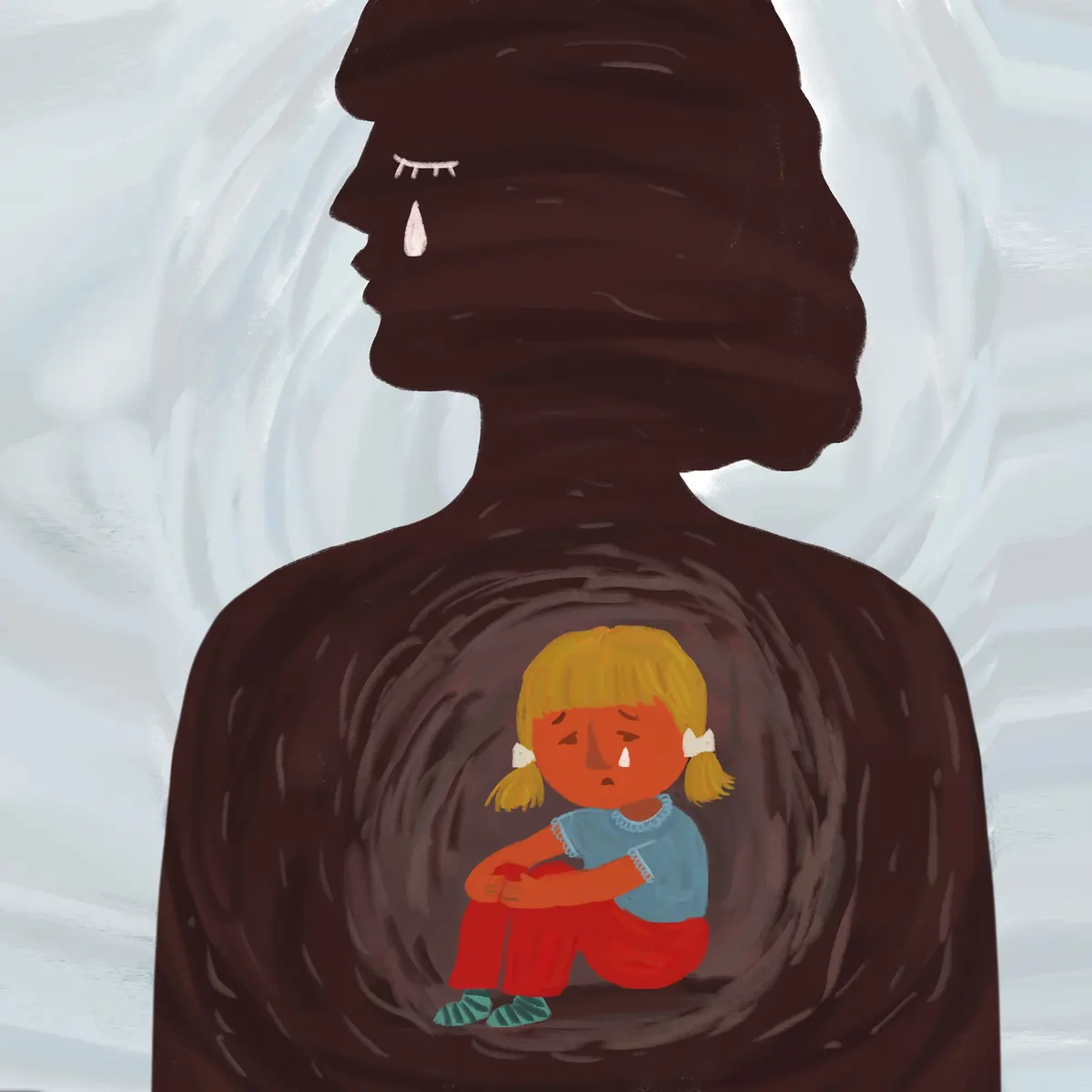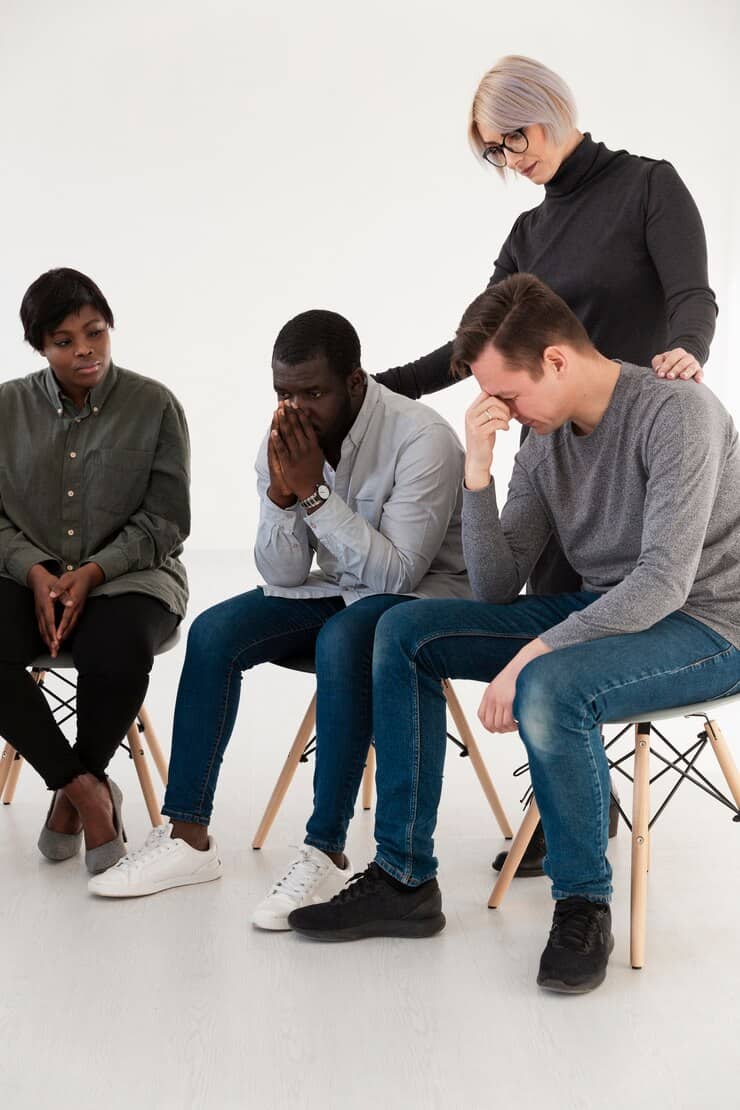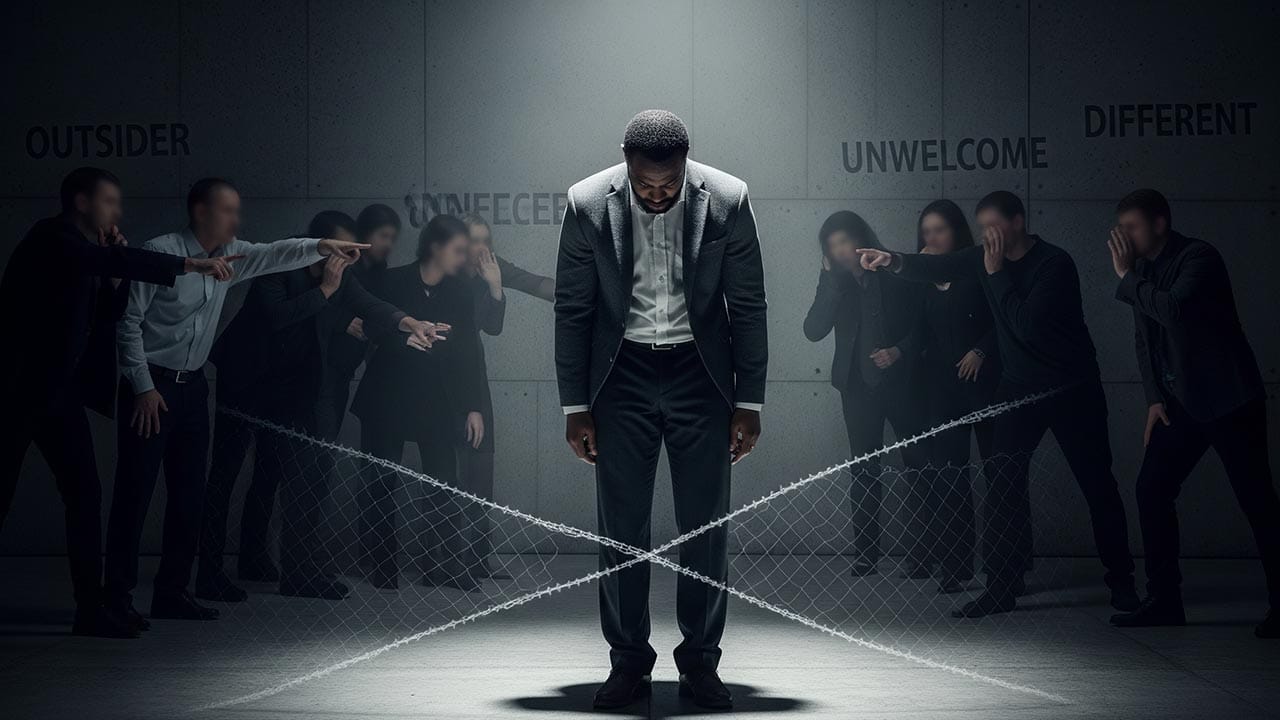The mental health of Black men in the United States is a significant public health crisis, stemming from systemic racism, restrictive societal norms about masculinity, and numerous barriers to effective care. While Black Americans face mental health conditions at rates similar to the general population, their journey to wellness is uniquely challenging. The consequences are severe; suicide is the third leading cause of death for Black men aged 15-24. In response, a powerful movement led by the Black community is creating new, culturally-attuned pathways to healing, redefining strength and wellness for a new generation.
The Weight of the World: A Crisis of Pressure and Pain
The mental health challenges faced by Black men are a rational response to a hostile environment. This crisis is rooted in a combination of relentless external pressures and isolating internal expectations.
Systemic and Societal Burdens
- The Trauma of Racism: Racism is not an occasional event but a chronic, environmental stressor that inflicts deep and lasting psychological wounds on Black men. This sustained stress can lead to “racial battle fatigue,” a state of emotional exhaustion and hypervigilance with symptoms that mirror PTSD. For many Black men, living in a racialized society is a state of perpetual trauma, compounded by disproportionately high exposure to community violence and police brutality. This trauma can also be intergenerational, with the psychological impacts of historical atrocities passed down through generations.
- The Confines of Masculinity: Society often imposes the archetype of the “strong Black man” who is emotionally invulnerable. This ideal, initially a survival mechanism against a society that often perceives Black men as threats, now acts as a cage, preventing internal healing. Black men are socialized to suppress their emotions, viewing vulnerability as a weakness. This creates a tragic paradox where the coping mechanism developed to survive racism becomes a primary barrier to healing from it.
- Socioeconomic Disparities: There is a direct link between poverty and poor mental health. Black adults living below the poverty line are more than twice as likely to report serious psychological distress. Systemic inequities have led to the overrepresentation of Black individuals in high-risk environments like the homeless and prison populations, where exposure to trauma is rampant.
Navigating a Broken System: Barriers to Care
When a Black man overcomes societal and internal pressures to seek help, he faces a healthcare system that is often inaccessible, alienating, and ill-equipped to meet his needs.
Obstacles to Healing
- A Legacy of Mistrust: A well-founded mistrust of the medical system is rooted in a history of betrayal, most infamously the Tuskegee syphilis experiment. This legacy is reinforced by modern-day provider bias, where physicians are often less likely to engage in patient-centered communication with Black patients, leading to misdiagnosis and inadequate treatment.
- Pervasive Stigma: Within many Black communities, mental health challenges are often viewed as signs of personal or spiritual weakness, creating an environment of shame and secrecy. This is amplified by a legitimate fear of criminalization, where a mental health crisis might be met with law enforcement instead of compassionate care.
- Lack of Cultural Competency: The mental health profession suffers from a crisis of cultural competency. Mainstream psychotherapy was primarily established by and for white populations and has historically pathologized Black cultural norms. This can lead to severe consequences, such as misinterpreting “healthy paranoia”—a rational survival strategy against racism—as a symptom of a psychotic disorder.
- Structural and Financial Barriers: Quality care is often a practical impossibility. Only 2% of U.S. psychologists are Black, creating a massive gap for clients seeking a therapist who shares their cultural background. Furthermore, nearly 10% of Black people in the U.S. lack health insurance, and the high cost of therapy sessions places it out of reach for many.
Forging New Pathways to Healing
In response to these systemic failures, a vibrant ecosystem of support has emerged from within the Black community, creating new models of care grounded in cultural understanding and empowerment.
Models for a New Era
The foundation of this new approach is culturally responsive and trauma-informed care. This means therapists must actively engage with the client’s cultural context, acknowledge the harmful effects of racism, and integrate the client’s unique background and beliefs into the treatment plan. For this population, a trauma-informed approach must be a racism-informed approach.
- Narrative Therapy: This non-pathologizing approach honors the client as the expert on his own life. It helps individuals separate themselves from negative life stories they may have internalized and “re-author” their own narratives, focusing on strengths and resilience. This process is a profound act of empowerment and healing.
- Group Therapy and Healing Circles: Collective models provide safe, non-judgmental spaces where Black men can share their experiences with peers who understand their struggles. This shared space provides validation, dismantles feelings of isolation, and directly counters cultural norms that discourage seeking help.
A Landscape of Support
Several pioneering organizations are at the forefront of this movement, working to dismantle barriers and provide accessible, culturally attuned care.
A Roadmap for the Future
Sustaining this movement requires a combination of individual empowerment, community support, and fundamental changes to the healthcare system.
Actionable Recommendations
- For Individuals: Men seeking therapy should feel empowered to interview potential therapists to ensure a good fit, asking direct questions about their experience with Black clients and their training in cultural competence. To combat stigma, men who have benefited from therapy should be encouraged to share their stories, following the “Healed Men Heal Men” model to normalize the conversation.
- For the Healthcare System: The shortage of Black mental health professionals must be addressed by investing in pipeline programs that provide scholarships and mentorship, modeled after the BLHF fund. Cultural competency and anti-racism training must become mandatory components of all mental health education and licensure requirements. Finally, services must move beyond the clinic and be integrated into trusted community hubs like barbershops and faith-based organizations.
- For Researchers: More rigorous studies are needed to evaluate the long-term effectiveness of culturally-adapted therapeutic models and to measure the positive impact of having a therapist of a shared racial identity.
In conclusion, the mental health crisis facing Black men is a profound indictment of systemic failures. Yet, a powerful, Black-led movement is rewriting the narrative, redefining strength as the courage to seek help and prioritize wellness. This new ecosystem of care, built on cultural understanding and community, marks the dawn of a new tradition that empowers Black men to heal and thrive.


